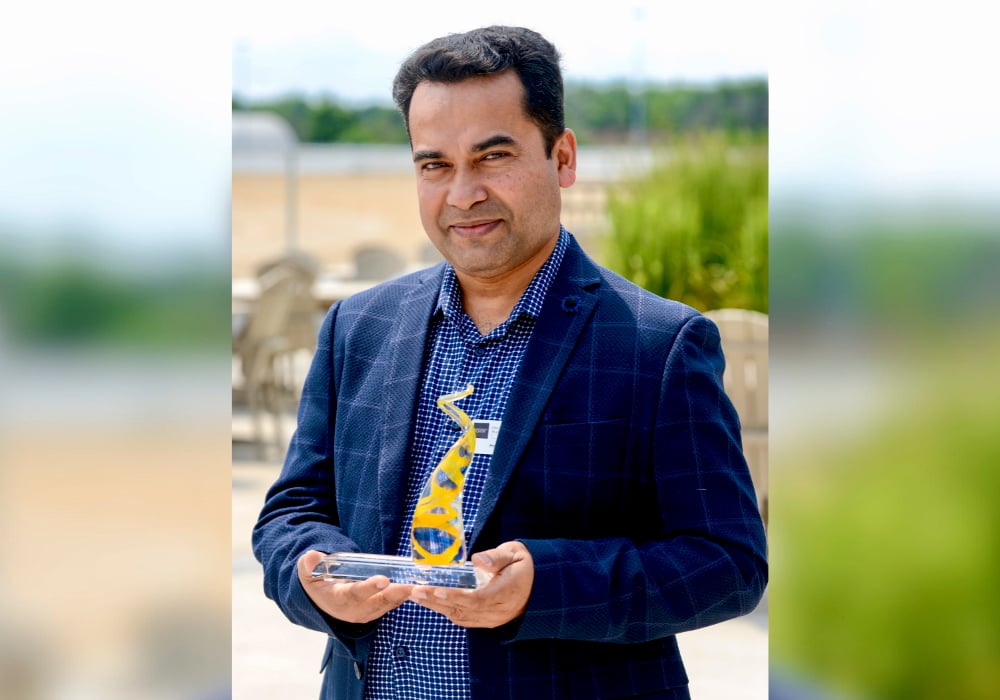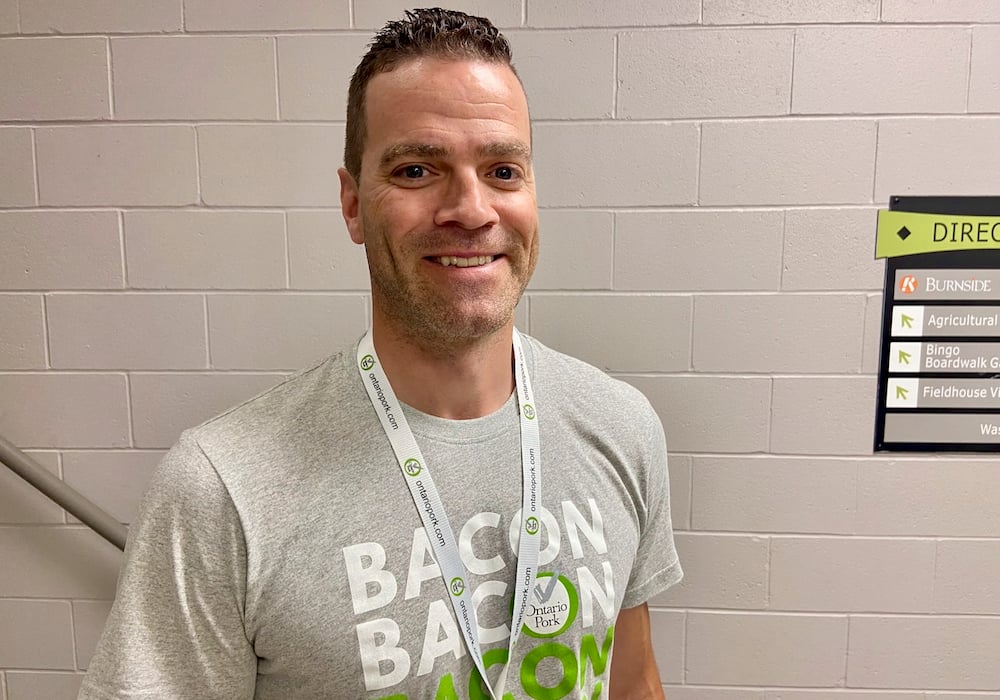Two winners of Early Career Research Award named

For the first time, the 2024 Early Career Research Award will benefit two researchers, Drs. Ataharul Chowdhury and Sam Workenhe.
Read Also

Push for more hog processing intensifies after Quebec closures
Reduced hog processing in Quebec has forced the redirection of thousands of Ontario hogs to U.S. and Manitoba processing plants….
The award is designed to acknowledge the value of livestock research conducted by young scientists on behalf of the livestock industry, said Deborah Whale, Grand River Agricultural Society’s first vice-president and member of the project review committee.
Why it matters: The early career mentorship program launched in 2022 as a bridge between academia and the livestock industry to build relationships and identify research gaps.
“It is a combined initiative by both Livestock Research Innovation Corporation (LRIC) and industry working together to encourage research results that will not only benefit production, animal health and nutrition, but will also be disseminated widely to anyone who will use the results,” said Whale.
The winners “represent the very best of those doing excellent research on behalf of the Canadian livestock sector, where constant improvement is the norm and indeed is necessary to maintain sustainability and competitiveness.”
The award was announced at the corporation’s annual symposium in Elora June 20. A $40,000 increase brings funding to $110,000 due to ongoing financial support from LRIC, Grand River Agricultural Society, Western Fair Association, Ontario Agricultural College and the Ontario Veterinary College.
Chowdhury’s $70,000 will advance his research on the emerging role of AI in Getting Research into Practice (GRIP) and increase awareness of innovative ideas related to livestock, agri-food and climate change misinformation. Chowdhury is expected to present the outcomes of his research in videos, summaries, blogs and other forms of social communication.
Workenhe, who previously received the award in 2022, will continue genomic research to study the connection between host interactions and reoccurring outbreaks of avian influenza in poultry and other livestock species. This may aid development of effective treatments against infection, which would reduce the economic impact and could prevent negative effects on human health.
“This could possibly lead to the development of a vaccine to combat it,” said Whale. “This would be a very important control mechanism for this dreadful disease and would literally save billions of dollars in losses worldwide.”
Chowdhury’s research focuses on the emerging role of AI related to livestock, agri-food and climate change misinformation.
“I don’t create technology, but I help people to team, mobilize knowledge, come up with solutions and research for the adoption of technologies, especially for how we can think about a livestock advisory service and how we’re going to use the recent development of artificial intelligence,” he said.
Two decades ago, agriculture solutions were generated through research, extension and farmers. Today’s issues are more complex, involving climate change, human welfare, traceability, data privacy and security and a more interactive approach.
AI-generated misinformation is considered a global risk for 2024, Chowdhury explained.
His innovation system platform, developed with the Food and Agriculture Organization of the United Nations, draws on research, educational and farming communities and global trade systems to mitigate that risk. It is implemented in eight countries on three continents.
Numerous factors hinder technology adoption, including a shortage of specialized skilled labour and data security and privacy concerns. Also, there is skepticism about the value of digital technology due to lack of compelling evidence or successful case studies, he said.
Source: Farmtario.com

